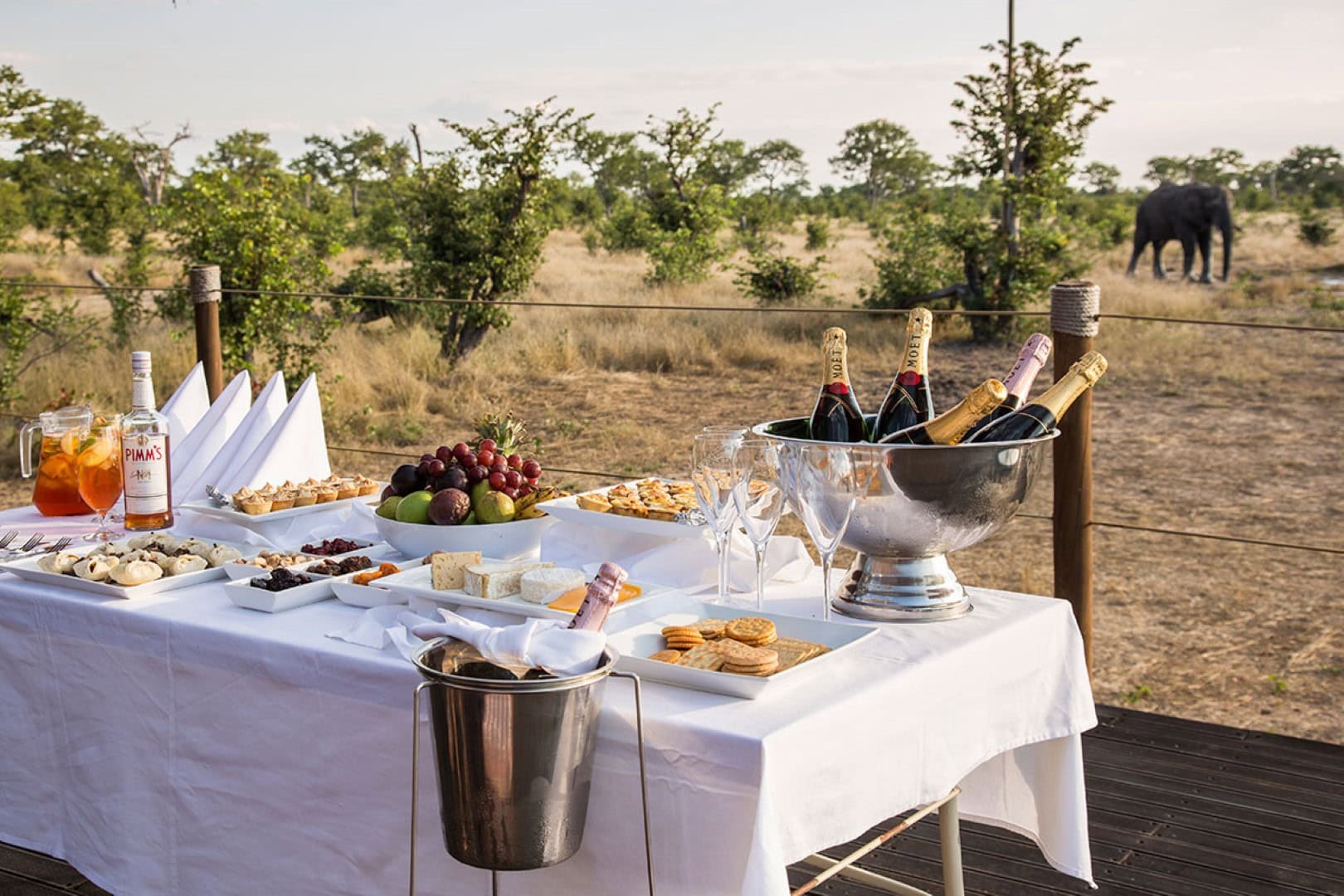Between the game drives and golden sunsets of your Botswana safari, you’ll discover that Botswana food is a celebration of local heritage elevated to fine dining.
A Taste of Botswana Foods
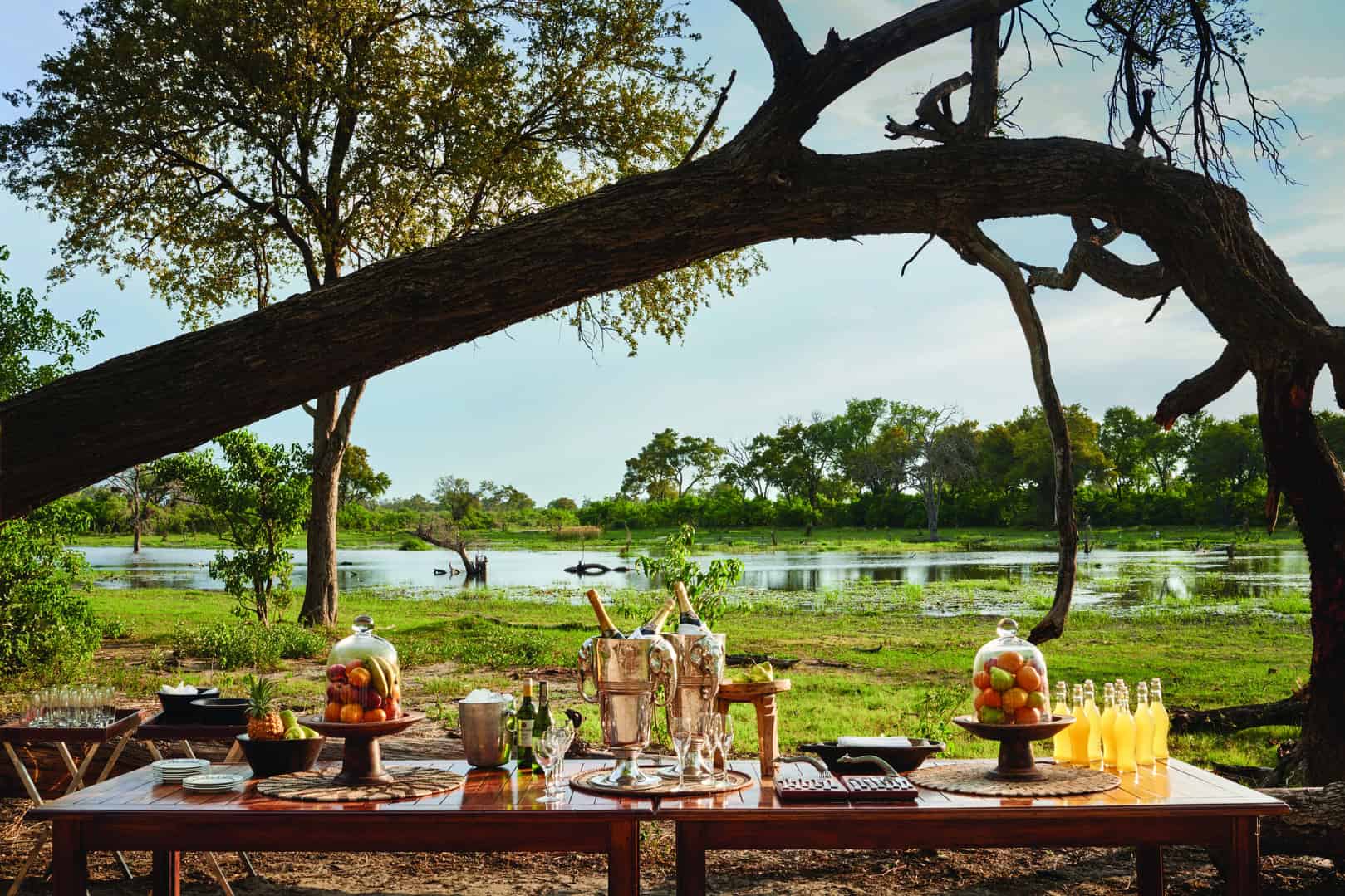
When dining in Botswana, expect both comfort and creativity. In most luxury lodges, chefs blend Botswana cuisine with global techniques. Botswana food recipes can include seared beef fillet served alongside seswaa, the Botswana national dish of slow-cooked shredded beef.
Another favourite is bogobe, a soft porridge made with sorghum, millet or maize flour and enriched with garden-fresh relishes. Traditional greens such as morogo (wild spinach) add a hint of earthiness that balances the meal.
A large quantity of high-quality beef is raised in Botswana, and it’s served at plenty of meals. Other meat on menus includes lamb, mutton, chicken, and goat. River fish are also part of Botswana cuisine.
Many fruits and vegetables are grown locally and served seasonally wherever you are.
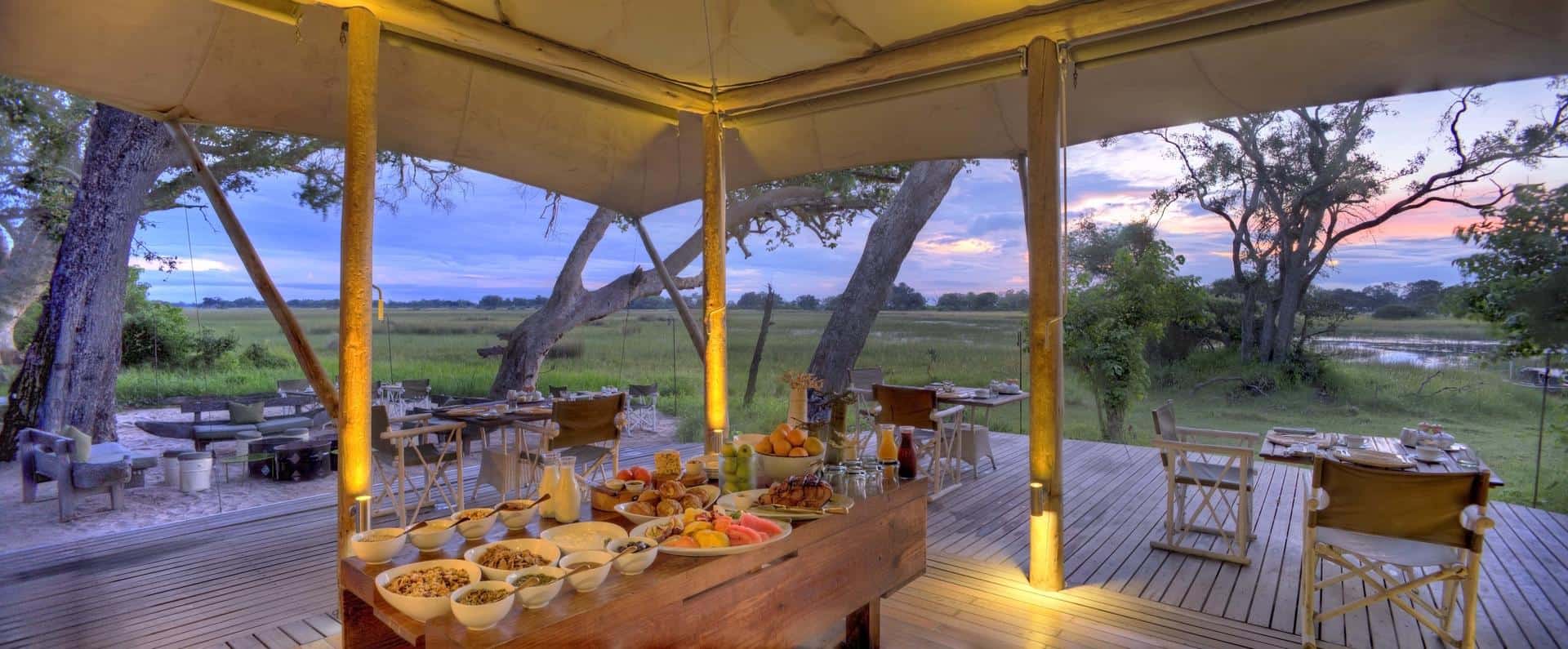
Wild relatives to the sweet domesticated watermelon you love, like bitter tsamma melon, originate in the Kalahari, which spreads across Botswana, Namibia, and South Africa. So it stands to reason watermelons are a plentiful seasonal crop in Botswana. Another melon, lerotse or lekatane, is indigenous to the area. It’s a less-sweet variety of watermelon, more similar in taste to cucumber when raw, and it’s used in several traditional dishes.
Batswana also make refreshing drinks with watermelon, ginger, and marula, another southern African fruit.
While food in Botswana is grounded in local flavours, the experience is anything but rustic. Candlelit boma dinners under the stars, sunrise bush breakfasts beside the Delta’s mirrored lagoons, and private tasting menus paired with South African wines all speak to the refined palate of the modern safari guest.
Fine Dining in the Wild
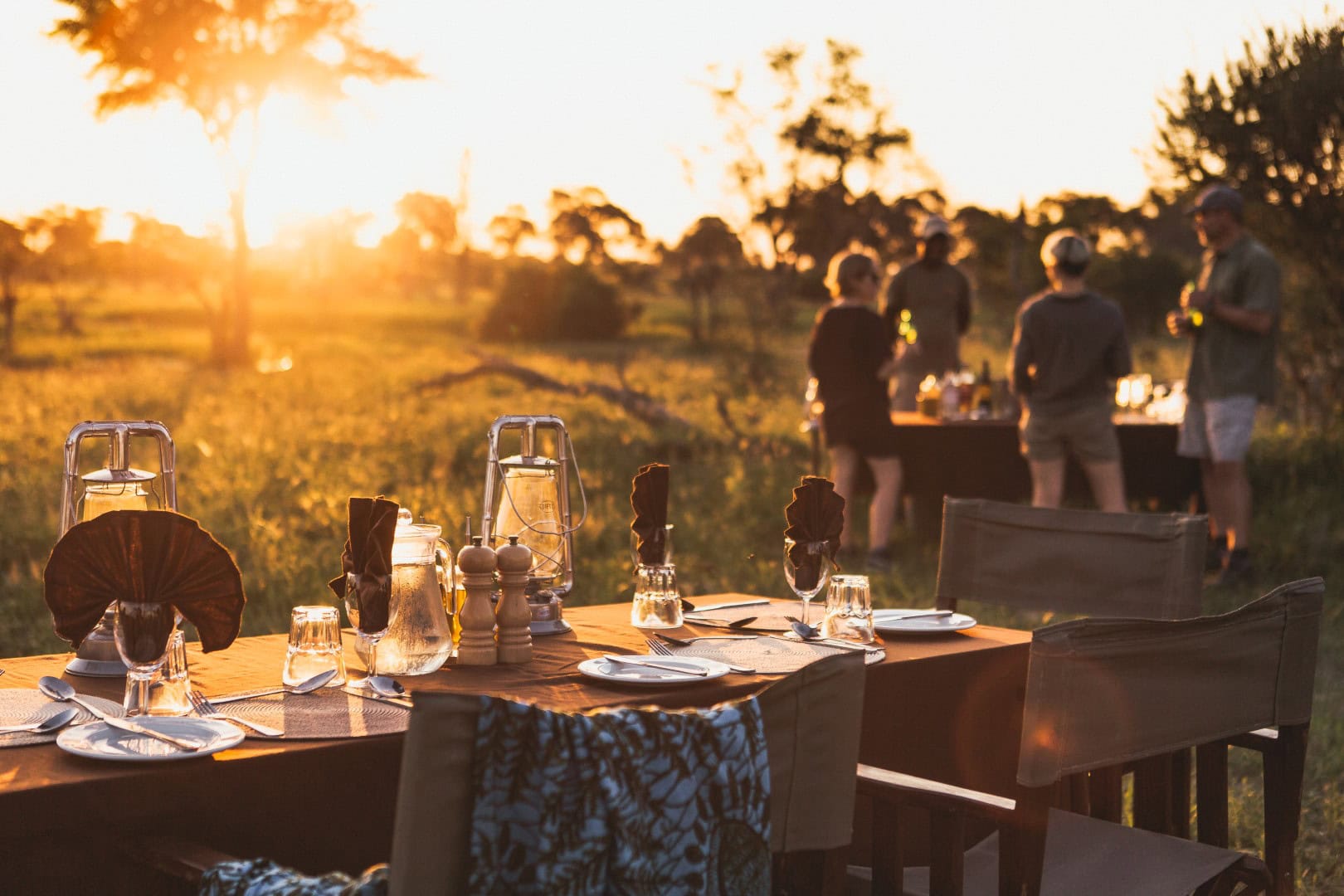
Culinary teams at Botswana’s five-star lodges are masters of anticipation and innovation.
Expect gourmet presentation, locally sourced ingredients, and indulgent surprises, such as handmade desserts.
Time to unwind? The bars are stocked with premium imported spirits and bespoke cocktails mixed to your liking. A gin and tonic never tastes better than when sipped at sunset on the Okavango floodplains – and while you’re here, make sure to try Okavango Gin, distilled and bottled in an off-grid distillery right in the Okavango Delta.
The local beer is called St. Louis, and it goes down a treat.
Understanding Tipping in Botswana
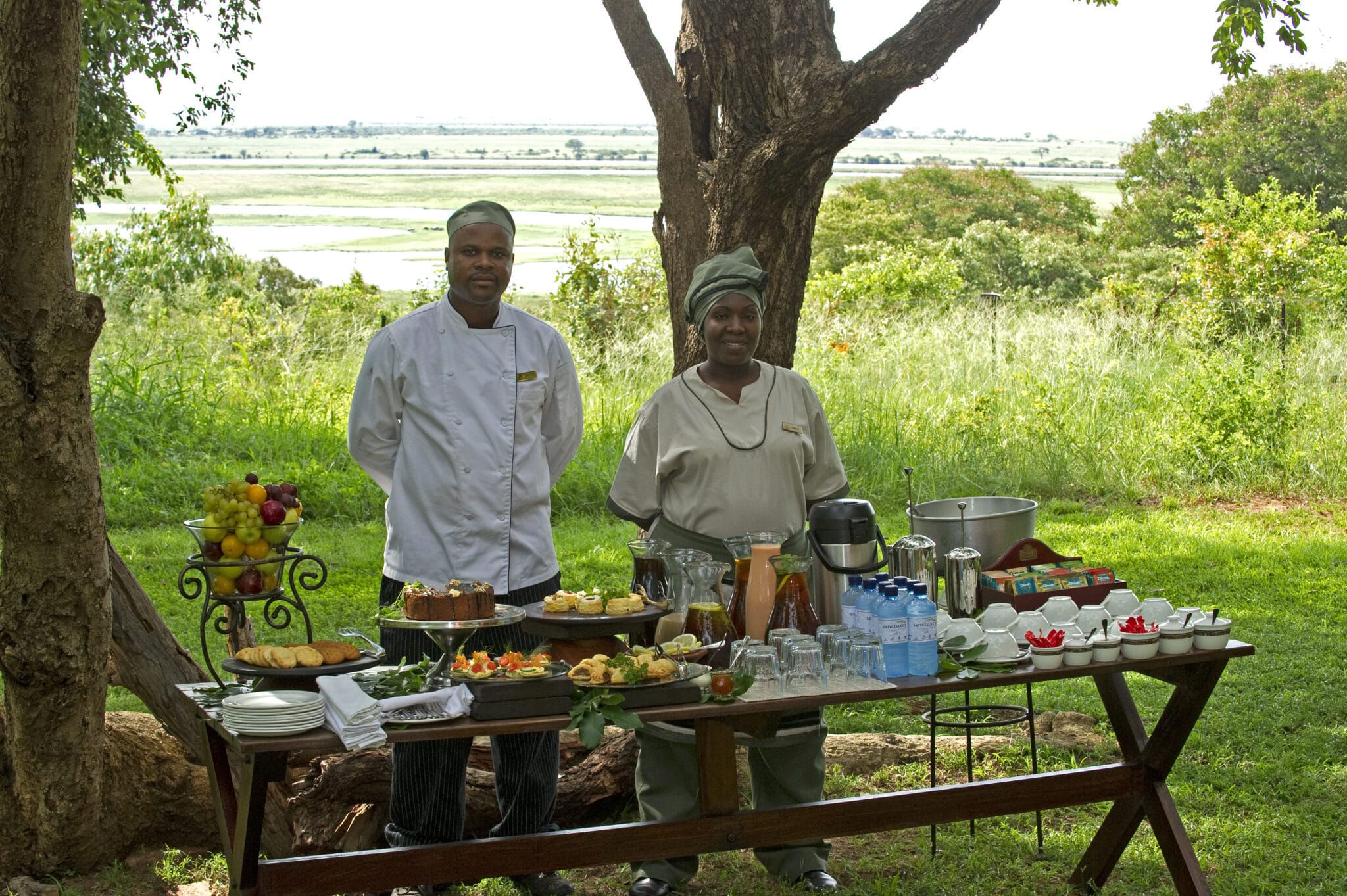
In Botswana, pula (BWP) and American dollars (USD) are the only accepted currencies when it comes to tipping.
As a general guideline, we recommend about USD20 per person per day for your guide, about USD15 for trackers, and about USD20 for general staff (porters, cooks, cleaners, waiters, watchmen, etc.). Some lodges have an anonymous tip box for all their staff, but you’re also welcome to give a gratuity directly to the person who helped you.
Tipping here is discreet and easy. Lodges and camps typically operate on an all-inclusive basis, and gratuities are shared fairly among staff. Still, many guests prefer to thank individuals directly.
If you’re staying in a city hotel in Botswana, work on BWP35 porterage per person. As for dining out, the norm is between a 10% and 15% tip on the total amount of the bill (depending on the level of service). For a group of five to six people or more, some restaurants add a gratuity directly onto the bill, so check first to avoid double tipping.
Both the pula (BWP) and dollar (USD) are accepted at most lodges, though smaller city venues prefer pula, and you won’t get change in dollars.
Effortless Hospitality
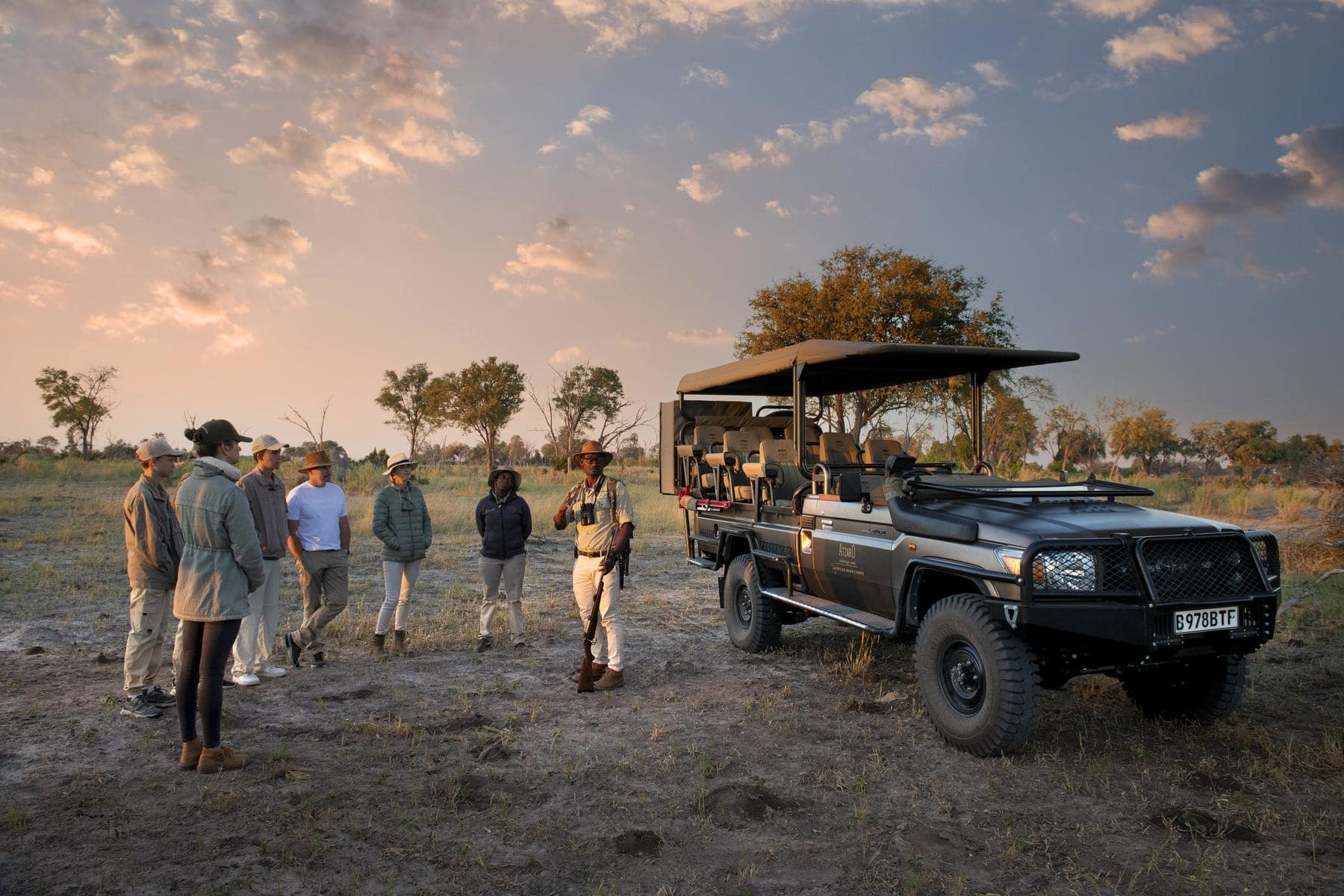
From the moment you arrive, you’ll notice Botswana’s quiet precision in service. There’s no need to calculate, chase, or second-guess etiquette. Every detail is designed to feel effortless. Your hosts take care of the subtleties, allowing you to relax into the rhythm of the bush, where every moment is handled with grace.
Explore our Botswana safari itineraries that can take you from the enchanting waterways of the Okavango Delta to the arid beauty of the Makgadikgadi, with so many more places in between.






